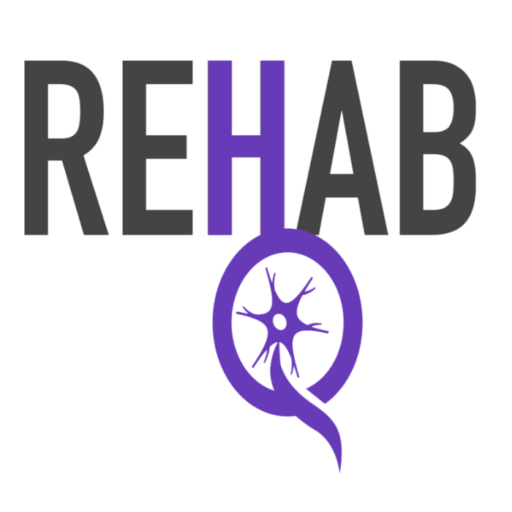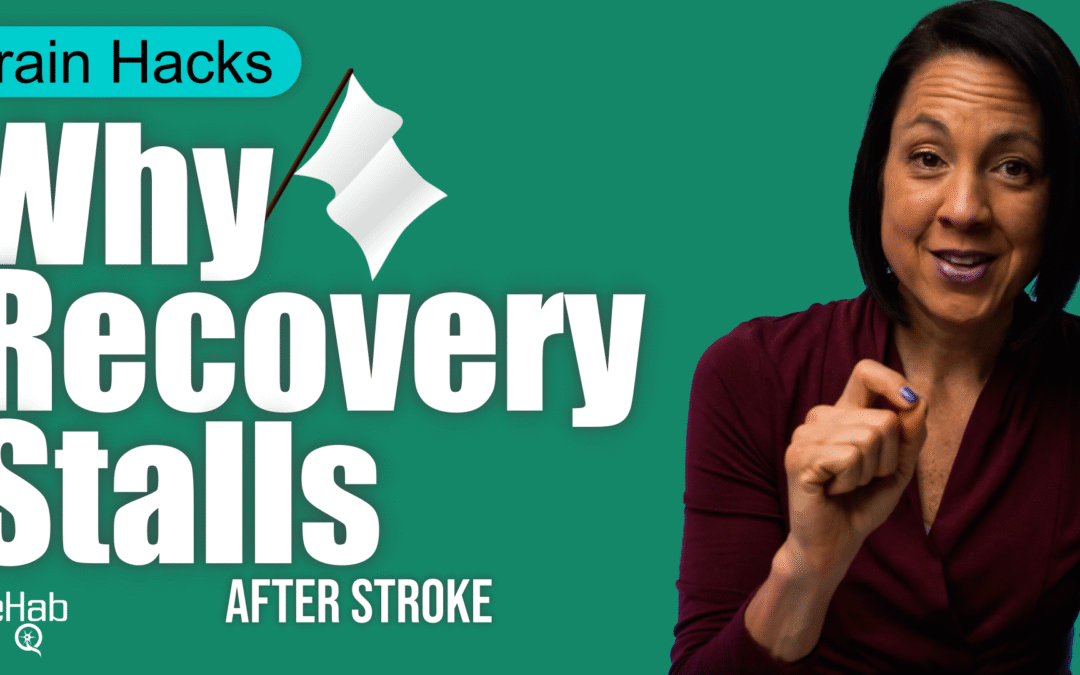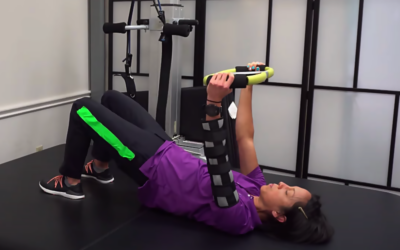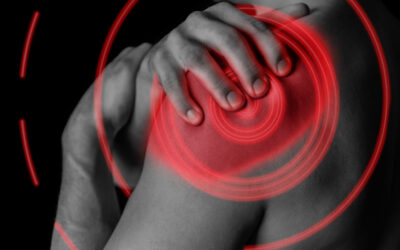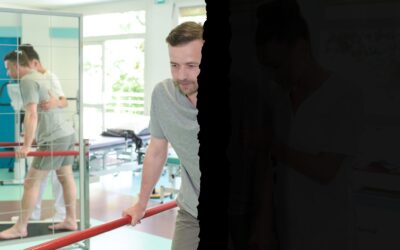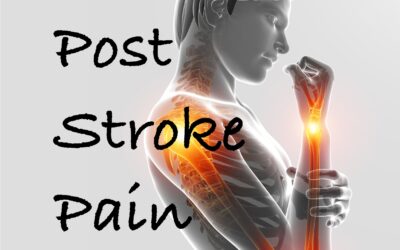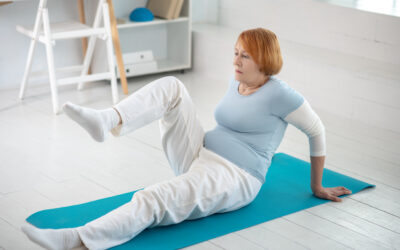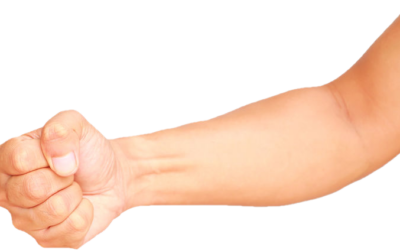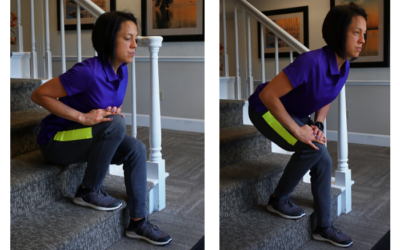Why Stroke Recovery Stalls and How to Push Through
Recovery may feel stuck, but progress is still possible. Here’s how to keep improving after a plateau.
Recovering from a stroke or neurologic injury can feel overwhelming. Walking, driving, working, or even just picking up your grandkids. It all feels like a mountain to climb. But what if I told you the secret isn’t in chasing the big goals right away? It’s in celebrating small wins every single day.
Why Big Goals Can Feel Overwhelming
I’ve worked with patients for over 22 years, and one of the most common things I see is this: the finish line feels too far away. You look at all the exercises, all the steps between where you are now and where you want to be, and it feels like dumping out a 1,000-piece puzzle. You don’t even know where to start.
And when your brain starts telling you “there’s no way I’ll get there,” motivation goes out the window.
Why Small Wins Matter for Your Brain
Recovery after stroke isn’t like recovering from a sprained ankle. It’s not just about getting your muscles stronger. You’re not just rehabbing a body part, you’re retraining your brain.
That means you need repetition, over and over, to rewire those pathways.
If someone had handed you an algebra book in elementary school, you probably would’ve thrown in the towel. But broken into small chunks? You learned, step by step, until one day algebra made sense.
Recovery works the same way.
The Confidence Snowball
Here’s what happens when you set small goals:
- You start to see yourself differently.
- You go from being “stuck” to being someone who can overcome challenges.
- Your confidence grows.
That confidence builds momentum. Momentum keeps you motivated. And once your brain starts to believe that, progress speeds up.
Real-Life Wins
Some of my patients want long exercise lists. They feel like if they’re not doing more, more, more, they’re not working hard enough.
But in reality? The people who get the best results are the ones who stick to a short, simple program every single day.
For example: Flipping your hand over 10 times.
These things sound small. But stacked up over days and weeks, they create real change. I’ve seen it hundreds of times.
Celebrate Every Step
Some of the best signs of progress aren’t dramatic, they’re subtle. Things like:
- Being able to lift your leg into the car a little easier
- Stepping over a curb without thinking about it
These are huge wins. If you start writing them down every day, you’ll be amazed at how far you’ve come in just a few weeks or months.
And if you feel like you can’t find any win? Then celebrate the fact that you showed up and did something today. That alone is a win.
How to Make Small Wins Work for You
Keep goals tiny. Make them so small you know you can succeed daily.
Tie them to a habit. Brush your teeth? Do 3 sit-to-stands right after. Making coffee? Practice standing balance for 5 seconds.
Check in occasionally. Zoom out every month or two to see how today’s small goals fit into your bigger vision.
Final Thoughts
Recovery isn’t one giant leap. It’s thousands of small steps, stacked one on top of another.
Don’t underestimate them.
Today, ask yourself: what’s one tiny win I can create? Do that, celebrate it, and trust that these small daily victories will add up to something far bigger than you can imagine.
And if you want more support, structure, and guidance on how to make this work in your recovery, check out our Rehab HQ Membership plans here. It’s designed to give you community, tools, and step-by-step strategies so you can stay consistent and keep moving forward.
Articles you may be interested in
Have you lost the ability to dissociate body movement?
One big problem after a stroke or brain injury is the inability to dissociate body movement. Movement dissociation is the ability for segments of the body to move independent of other segments. In other words, body parts (and their movement) want to "couple together"...
Frozen shoulder and its link to post stroke shoulder pain
Frozen shoulder, also called adhesive capsulitis is one of the most prevalent causes of post stroke shoulder pain. It is a condition that is characterized by shoulder joint stiffness and pain. Other neurologic injuries can also cause this condition. Such as multiple...
Hemineglect after a stroke: When half the world is missing
hemineglect is a condition where someone loses the ability to attend to, sense, and/or perceive information on one side. This condition is also referred to as unilateral neglect, spatial neglect, and/or hemispatial neglect. Several neurologic condition can cause this...
The Voice
Some call it intuition. Others might call it a “gut” feeling. And for those who believe in a higher power, “a direct message from God”. You know, that little voice that prompts you to take action. Yeah, that voice. In the past 20 years, I have had the pleasure of...
Post Stroke Pain: Diagnosis and Treatment
Pain is a common symptom after a stroke. Unfortunately, pain can be a significant barrier to regaining function. In some cases, there is an identifiable cause related to a movement or a structural problem. The rehab team can identify this, prescribe the...
Advanced Exercise: Walk without fear of falling
How do you regain the ability to walk without fear of falling? Fear of falling is a MAJOR concern for a lot of people. In the early stages of rehabilitation, the goal is to regain movement control at the hip, knee, and ankle. This is necessary to ensure that someone...
Tips for effective physical therapy at home after a stroke
An effective physical therapy program at home after a stroke is the most critical component for a successful recovery. I dare say MORE important than face to face time with your therapists. As someone who earns a living by treating patients (in person), this is a...
Blessings in disguise
Life isn’t always easy. I am probably not telling you anything you don’t already know. No one is exempt from challenges in life. Some go through more challenges than others. I have learned to be content with NOT (always) figuring out why. But I know that is not...
What Causes a Clenched Hand After a Stroke
A stroke can cause a wide range of problems in the arm. One of the major causes of disability after a stroke is a clenched hand. The most common cause for a clenched fist is spasticity. If left “unmanaged”, spasticity creates muscle shortening which will result in...
Regain Normal Walking After a Stroke: Advanced
A common goal after a stroke or a brain injury is to regain "normal walking". However, this goal is not limited to just those who have suffered a stroke. I dare say it is the number one goal of almost everyone who has suffered an injury to their neurologic system. ...
